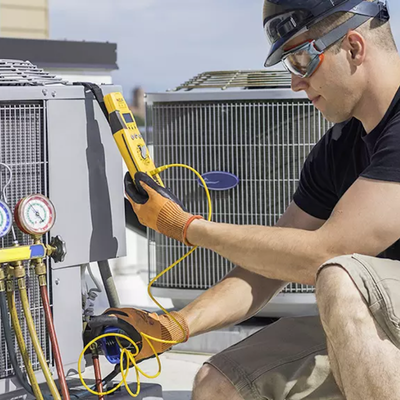HVACR Industrial Automation
Driving technology in HVACR Industrial Automation
HVACR industrial automation refers to the integration of advanced technologies such as sensors, IoT (Internet of Things), AI (Artificial Intelligence), and control systems to monitor and manage heating, cooling, and ventilation systems. These technologies enable real-time data collection and analysis, allowing for optimized performance and predictive maintenance.
Specialist variable frequency AC drives for the HVACR industry provide cost-effective, easy-to-use motor control for HVACR applications that don’t require independent building automation intelligence.
Key Technologies in HVACR Automation
IoT Sensors
IoT-enabled devices collect and transmit real-time data on system performance, helping identify inefficiencies or potential issues.
AI and Machine Learning
AI algorithms can analyze large volumes of data to optimize HVACR operations, predict maintenance needs, and enhance overall system performance.
Programmable Logic Controllers (PLCs)
PLCs are integral to automation systems, enabling precise control over HVACR equipment.
Building Management Systems (BMS)
A BMS integrates HVACR automation into broader building operations, allowing centralized control and monitoring.
Applications of HVACR Industrial Automation
Commercial Buildings
Automation ensures optimal energy use in office complexes, malls, and hospitals.
Industrial Facilities
Precision control in manufacturing plants ensures consistent product quality.
Cold Storage and Warehousing
Automated systems maintain precise temperatures for perishable goods.
Data Centers
HVACR automation helps maintain critical temperature and humidity levels for server reliability.
Remote Monitoring and Control
HVACR automation enables remote monitoring and control of systems, allowing facility managers to adjust settings and troubleshoot issues from anywhere.
Benefits of HVACR Automation

Enhanced Efficiency
Automated HVACR systems can adapt to changing environmental conditions, ensuring that energy is used efficiently without compromising comfort or system performance.
Predictive Maintenance
Automation systems can predict and alert operators about potential system failures before they occur, reducing downtime and maintenance costs.
Cost Reduction
By minimizing energy consumption and enabling predictive maintenance, HVACR automation lowers operational costs significantly.
Improved Environmental Sustainability
Smart HVACR systems help reduce carbon footprints by optimizing energy use and reducing waste.
FAQ
What is predictive maintenance in HVACR automation?
Predictive maintenance uses data and analytics to predict when equipment might fail. This proactive approach minimizes downtime, reduces repair costs, and enhances system reliability.
Why Choose for Your HVACR Automation Needs?
we specialize in providing cutting-edge HVACR solutions tailored to industrial needs. Our range of products includes IoT-enabled devices, PLCs, and advanced BMS components, ensuring your systems operate efficiently and reliably. With our expertise, you can reduce energy costs, minimize downtime, and enhance system sustainability.
How does automation improve energy efficiency in HVACR systems?
Automation enables systems to adjust dynamically based on environmental conditions, occupancy levels, and energy demands. This minimizes energy waste and ensures optimal performance.

